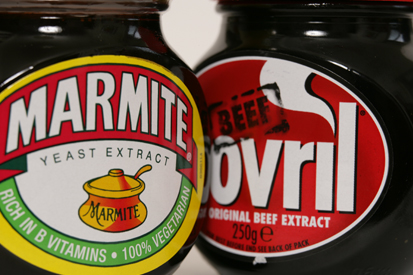Unilever claims that disbanding its specialist Chrysalis unit, based in Rotterdam, and putting its 'local jewel' brands such as Marmite and Pot Noodle back under the control of their countries of origin, is insignificant.
'Only reporting lines have changed,' says a spokesman. 'The brands will continue to be developed and built by each country, as they have always been.'
However, analysts believe the switch by Unilever, which had been pursuing a global brand strategy, reflects an overdue recognition of the power and commercial potential of local brands.
Martin Deboo, an analyst at Investec, suggests Unilever's 'path to growth' strategy, which reduced its number of brands from about 1600 in 2000, when it was introduced, to some 400 today, 'was perhaps too radical and left them too exposed locally'.
He explains: 'A brand like Marmite, although highly local, is nevertheless a door-opener to UK retailers because it is a must-stock item. It has critical mass in the marketplace and should be managed locally to maximise its potential.'
Deboo points out that while Unilever makes great play of 'owning' the supermarkets, its presence in ambient grocery aisles is 'sporadic'. In fact, he cites Premier Foods, which bought many of Unilever's cast-offs, as 'the engine of power for ambient'.
Maintaining a balance
However, describing the reversion to a more local approach as a 'U-turn' is unfair, say some commentators.
'Managing the tension between global scale and local needs is a constant challenge for all FMCG companies,' says Andy Bird, joint managing director of Brand Learning. 'At best the balance is constantly shifting in response to economic cycles and changing corporate strategies.'
Graham Hales, chief executive of branding consultancy Interbrand London, agrees: 'A brand is a living business asset, not set in stone as it was in the old days. The trick is to manage its evolution with a strategy that is strong and flexible to maximise its value.'
Deboo believes that 'we are entering a new era in international grocery, with local and global being integrated more pragmatically'. Bird, however, argues that developing local brands such as Peperami, Marmite and Pot Noodle is a different kettle of fish from managing global brands at a local level.
Moreover, because its products span both food and home and personal care, Unilever may have to work harder to reconcile global and local brand management than other FMCG companies, where the focus tends to be on either one or the other. Procter & Gamble, for instance, is largely global because of its home and personal care bias, while Nestle, solely a food and drink business, has never pursued a global model because of the local preferences governing its categories.
'Unilever tried to cure a weakness - complexity - rather than build on its strength - its heritage,' says Mike Sommers, an independent marketing consultant. 'It tried to force a heterogeneous portfolio into a P&G-type straitjacket, when they were very different businesses. If it had (retained) its heritage brands, it would have made a lot more money than it did through a fire sale. So it is doing the right thing now, albeit a little late.'
Nonetheless, while some suggest that disbanding Chrysalis reduces the likelihood that Unilever will sell its 'local jewels', Clare Scott, brand director at Added Value UK, believes those brands remain 'somewhat unloved' within Unilever. Following the end of Chrysalis, they have become loosely affiliated under the banner 'Incs'. This, suggests Scott, 'is unfortunately reminiscent of "special projects", and I can foresee that these unique, charismatic and chest-thumpingly British brands might end up at a Premier Foods or equivalent smaller corporate environment'.
Unilever should resist the temptation to be so 'tidy-minded', says Marcus Mitchell, client director at branding agency Corporate Edge. Perhaps most telling is his final comment that 'consumers don't think like that'.
TIMELINE
2000: Unilever introduced its 'path to growth' strategy, which ultimately resulted in reducing about 1600 brands to about 400.
2008: Chrysalis established to focus resources on 'local jewel' brands in Europe. The unit covered four UK brands - Pot Noodle, Marmite, Bovril and Peperami - and 14 in the rest of Europe.
2010: Incs established, covering, in the UK, the four Chrysalis brands and SlimFast. The brands now report to their country of origin, not to Europe.


